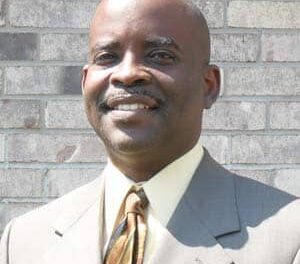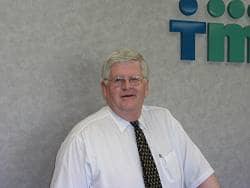When I look across our professional landscape, what do I see? The Baby Boomers are starting to leave and enjoy their well-deserved retirement. They have been the leaders of the profession for many years. But as they depart, who is going to step up and take the reins of leadership?
One of the questions posed on the recent 2015 24×7 salary survey asked respondents about the number of years until they plan to retire. The survey found that over the next 5 years, about 15% of biomeds will leave the profession. That percentage increased to 35% over the next 10 years, and 55% within 15 years. If we are not actively planning, mentoring, encouraging, and developing our young professionals now, we’ll leave a huge void to be filled. We must act now, or the IT profession will step up and fully assimilate us into their ranks.
Speaking as a retired Baby Boomer, I see some issues that raise some concerns for our profession moving forward. I recently attended some presentations at a conference. The speakers did an excellent job engaging the audience. The topics were relevant and thought-provoking. But when it came to interacting with the presenter or asking questions, there was dead silence. Even when the speakers tried to solicit input from the audience, only silence.
Do the next generations not have any ideas of their own, or are they simply disconnected? Has the current leadership not encouraged or allowed their staff to be open and voice their thoughts? Have we as a profession discouraged change and advancement so that the next generations are simply satisfied with the status quo? We need to answer some of these questions if we are going to grow the profession and prepare the next generation of leaders.
Our profession covers a wide array of generational groups. Each generation has developed its own characteristics and attributes based on the period in which they grew up, which we should remember when considering how to involve younger members as leaders: the Baby Boomers, born 1946 to 1965, who had good economic opportunities and were largely optimistic about the potential for the country and their own lives; Generation X, born 1966 to 1976, characterized by high levels of skepticism and “what’s in it for me” attitudes; Millennials, born 1977 to 1994, known as incredibly sophisticated technology-wise; and Generation Z, born 1995 to 2012, growing up in a highly sophisticated media and computer environment. This is not meant to be a sociology discussion, but rather an invitation to reflect on what these demographics mean for our profession as we move forward.
Look at those who serve on the various professional committees, task forces, groups, etc. Are you seeing many of the same faces involved in a wide array of activities? I do. But is that a bad thing? In general, I’d say no, but it does bring up a good question: Is it that way because these people are high energy, well-connected, and want to have their finger in everything, or is it because there is a need and no one else is willing to raise their hand to volunteer? Whatever the reason, we need new, young blood to be infused into these leadership roles.

I used to like to ask during performance reviews, “What are you doing to prepare yourself to take over my job?” The answer I typically received was, “There is no way in the world I would want your job!” Those in leadership positions do put in more than their share of long hours keeping up with the demands of their organization and the healthcare field as a whole. Maybe we make it seem too demanding, overwhelming, unsatisfying, or unachievable to those we work with. I know there are times when I have displayed some of these emotions. But deep down, I always felt like I was truly making a positive difference in my department and organization. We as leaders need to show the next generations how we feel on the inside, rather than how we appear on the outside.
How will this all turn out? Only time will tell. What is certain is that we will need new leaders to step up and fill the shoes of the Baby Boomers as they retire. Our current leaders need to invest the time and effort to find and develop talent for the future. We need individuals who aren’t afraid to move our profession forward. Are you one of the new leaders?
Dennis Minsent is the president of Healthcare Technology Management Solutions LLC.
Photo credit: © Kts | Dreamstime.com







Good column, Dennis. Thanks.
This Boomer is one of the people who chose not to ascend the ranks too far. At one point I was in a director-level position, but I “stepped down” because I wasn’t a good match for it. I’ve done OK as a manager, but it isn’t my strong suit. To borrow an expression from my youth, the role just didn’t and doesn’t turn me on. I was incredibly fortunate to work in an organization where there were engineering roles for me to move to. It really wasn’t “stepping down” at all.
Your question re: why others don’t want your job is one deserving of a lot more consideration. Consider also that there are only so many jobs like yours to go around. What additional question does this raise?
For quite a few years, the leaders in the field have worried that there have not been enough new people coming into the field. The response has typically been to approach schools re: opening more programs. To me that is focusing on supply as opposed to demand. If I was at the other end of my career, I might be thinking about job and advancement opportunities. Like I said above, there are only so many jobs like yours. What other demand might outside traditional clinical engineering exist where a CEs or BMETs skills and experience would prove valuable?
People too often confuse leadership with management. Someone can be a good manager but not a leader, and vice versa. They can intersect in a person, and an organization is fortunate when they do. I believe one of the defining characteristics of a leader is the capability to communicate and instill vision. It’s a little late for us Boomers to still be doing much of that; going forward it’s SEP (Somebody Else’s Problem). I believe going forward this is the field’s biggest challenge of all. It needs a vision, or perhaps many visions. A vision should be informed by the past, both in terms of carrying on what works and letting go of what maybe one did but doesn’t any more. What is the field doing to inspire and communicate vision? To paraphrase an old saw: Without vision, a profession perishes.
Building on Ricks Comments, and speaking to “todays industry leaders” I would say the #1 issue our generation’s management needs to do for has to begin to “fix” for the next generation is wholeheartedly join the battle for “Right to Repair”. If our next generation is to have a job at all. when I look back on my 35 years as a Biomed, the best years were when I worked on lab equipment thru the 80’s and early 90’s. A service manual was complete and well documented. Every part was listed and drawn in the book and I could order them from the OEM as needed. Today’s industry leaders really need to work hard to push the OEMs back to this baseline so our next generation of BMETs will be something more than facilitators of vendor visits, filing service reports, packing/unpacking boxes and banging keyboards. While healthcare technology management is all well and good, its healthcare technology “fixing” that makes a difference to caregivers and their patients. your will never hear a caregiver page STAT to have a service order reconciled. But we do need to make sure the BMET generations that follow do not have their ability to meet their fiduciary duty to support service and maintain their hospital’s technology further degraded by greedy OEMs that drive their bottom lines at the expense of the nations healthcare system.
and I will now pass the torch to you???